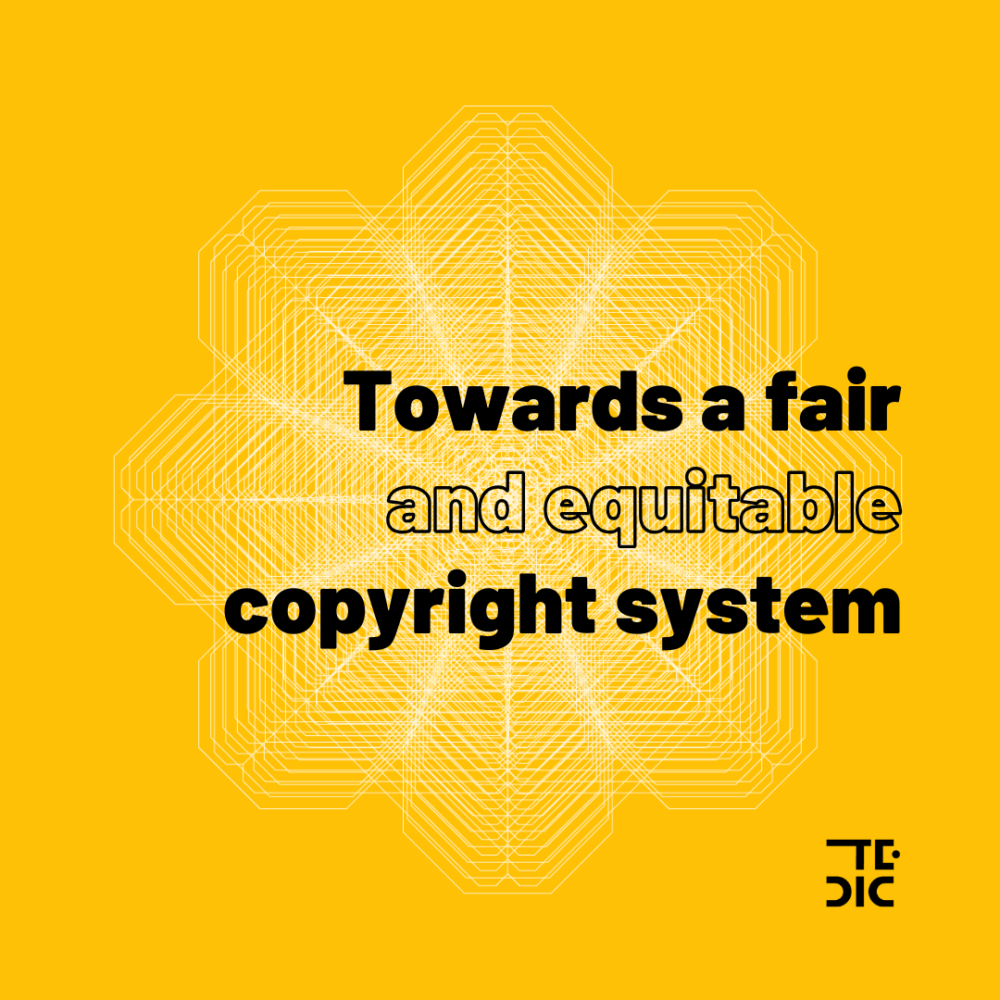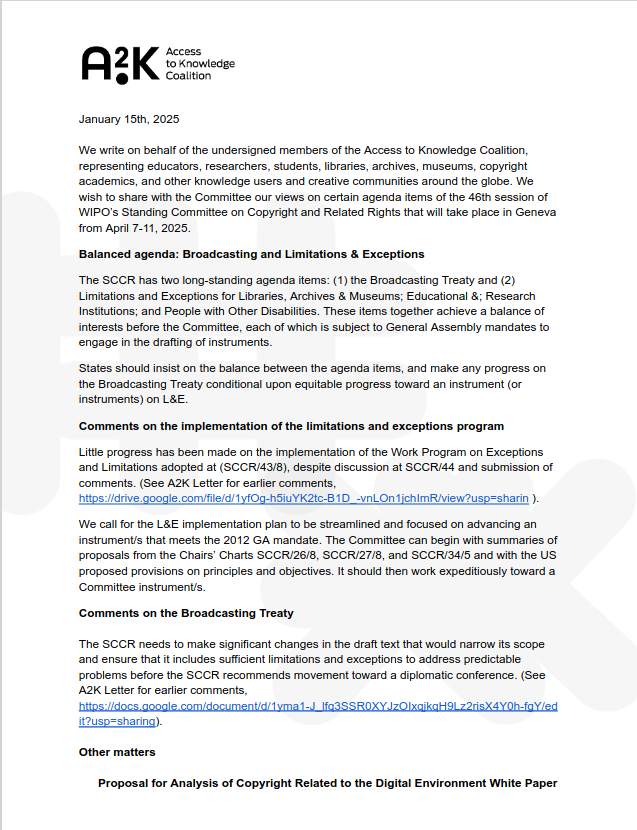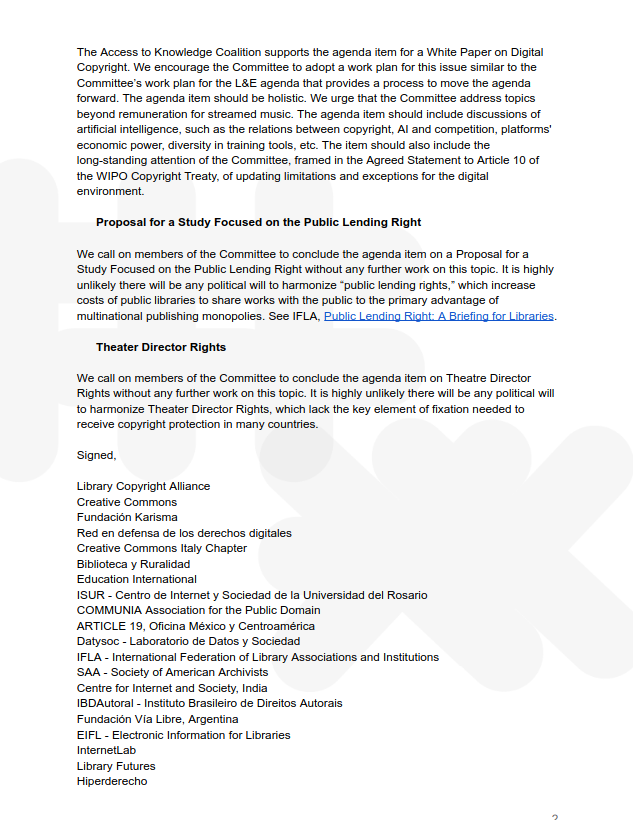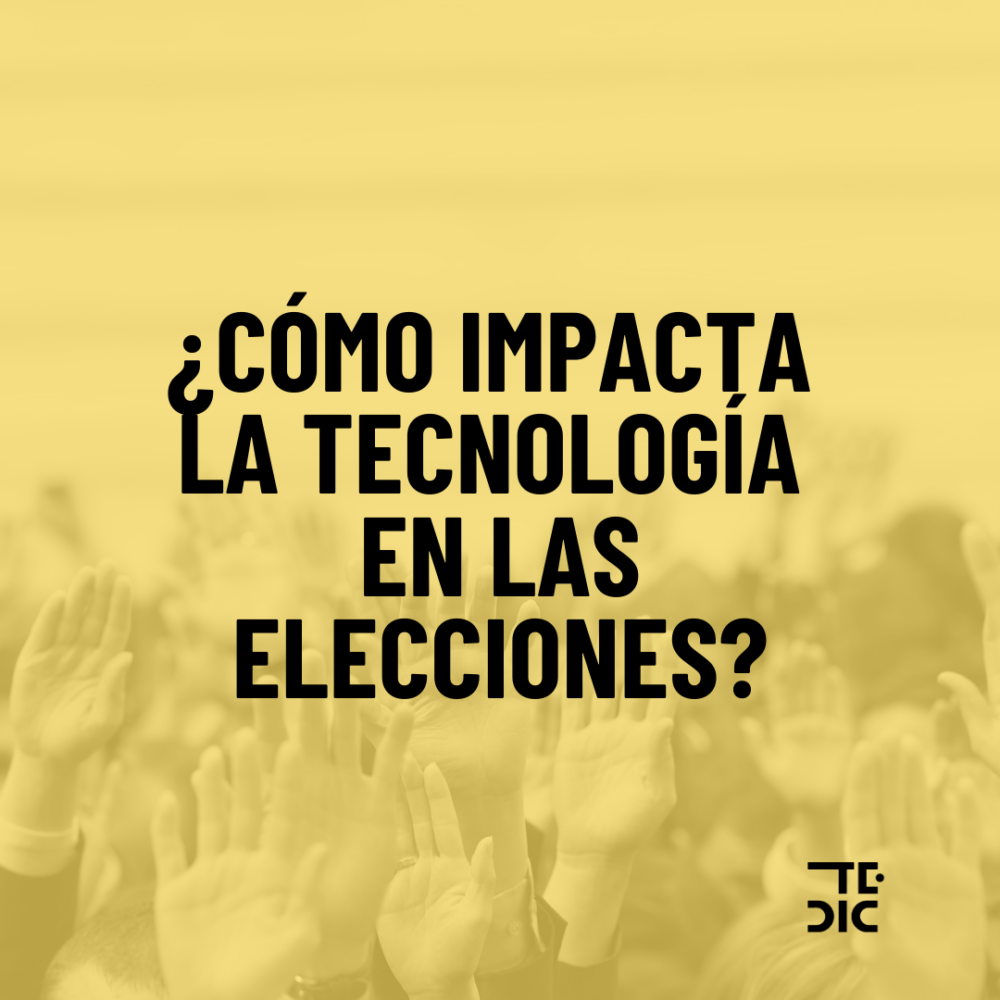
Access to knowledge is a fundamental right that is not enjoyed equally around the world. Global crises, such as the HIV/AIDS pandemic, climate emergencies and socioeconomic differences between the global north and global south, highlight the barriers that the current copyright system imposes on those who learn, teach, research and preserve cultural heritage. To meet these challenges, a more equitable and updated regulatory framework is urgently needed.
At TEDIC, we have been part of the Access to Knowledge Coalition (A2K) since 2020 and, together with more than 45 organizations from around the world, we signed an open letter to the members of the Standing Committee on Copyright and Related Rights (SCCR) of the World Intellectual Property Organization (WIPO). In this document, we reaffirm our commitment to an equitable agenda, adapted to the particularities of different communities and countries in the field of copyright and access to knowledge in the framework of the 46th session of the SCCR, to be held from April 7 to 11, 2025 in Geneva.
About the statement
One of the central points of our statement is the need for a balanced agenda in the SCCR, ensuring that any progress on the broadcasting treaty is accompanied by progress on limitations and exceptions (L&E) for libraries, archives, museums, educational institutions and persons with disabilities. It is critical that states insist on this balance and ensure that rights of access to knowledge are not sidelined in favor of commercial broadcasting interests.
In relation to the broadcasting treaty, we emphasize the importance of introducing significant modifications that reduce its scope and ensure that exceptions and limitations are sufficient to avoid adverse effects on access to information and freedom of expression.
In addition, we call for accelerated implementation of the work program on limitations and exceptions adopted in SCCR/43/8. We believe that the lack of concrete progress in this regard hinders the creation of instruments to overcome the barriers that copyright laws impose on education and research. We therefore recommend taking up the previous proposals and key provisions of various countries as a basis for the development of new regulatory instruments.
The issue that is most relevant to us, as a Latin American digital rights organization, is the need to address copyright in the digital environment through a document that addresses issues such as artificial intelligence, the growing power of digital platforms and the updating of limitations and exceptions to reflect the new dynamics of access to online knowledge. We believe that this point should be addressed with a comprehensive approach that contemplates both the fair remuneration of creators and the protection of free and equitable access to information.
Our commitment
At TEDIC we believe that the international copyright system has failed to keep up with the advance of technology and digital practices. That is why we consider the importance and urgency of promoting regulatory changes that guarantee a fairer and more equitable access to knowledge for the benefit of society as a whole. Our organization will remain committed to the defense of a balanced copyright system, based on the principles of the Universal Declaration of Human Rights and oriented towards more inclusive and just societies.


Download the full statement here.
This publication has been financed by the European Union. Its contents are the sole responsibility of TEDIC and do not necessarily reflect the views of the European Union.


 Contribution to the report by Special Rapporteur Irene Khan: Freedom of expression and elections in the digital age
Contribution to the report by Special Rapporteur Irene Khan: Freedom of expression and elections in the digital age